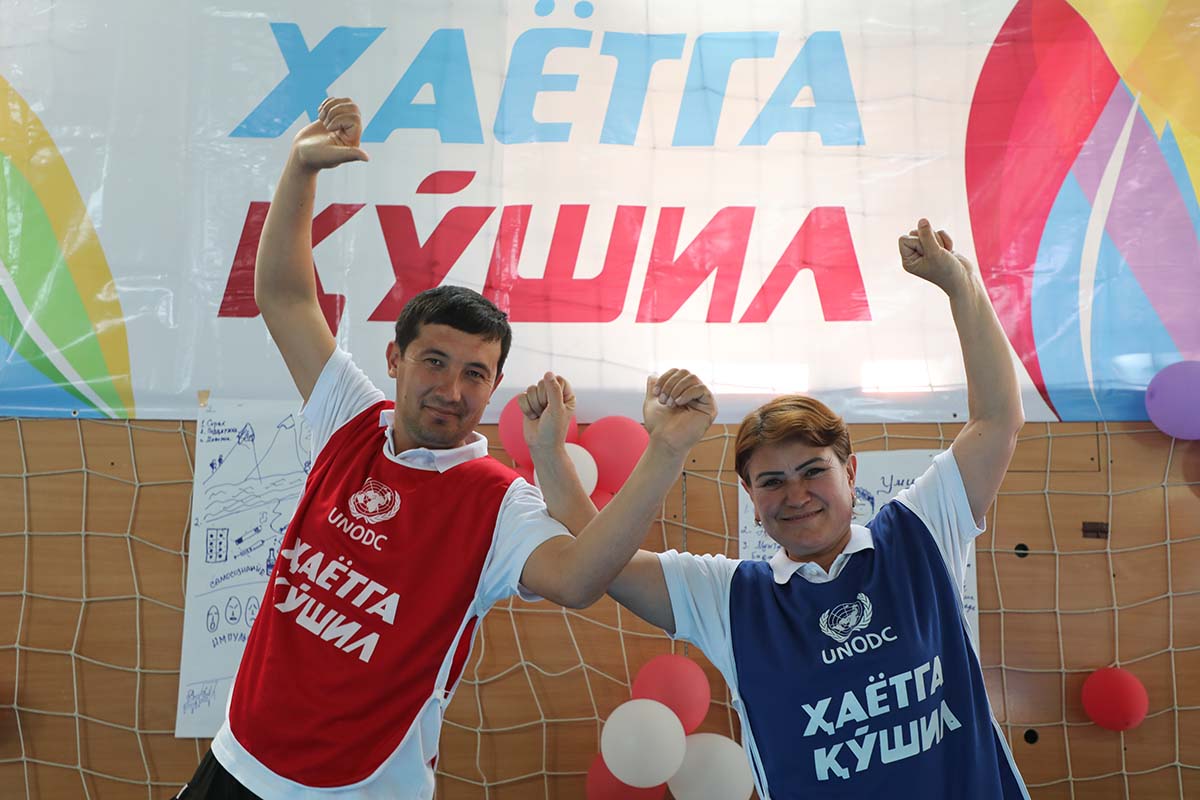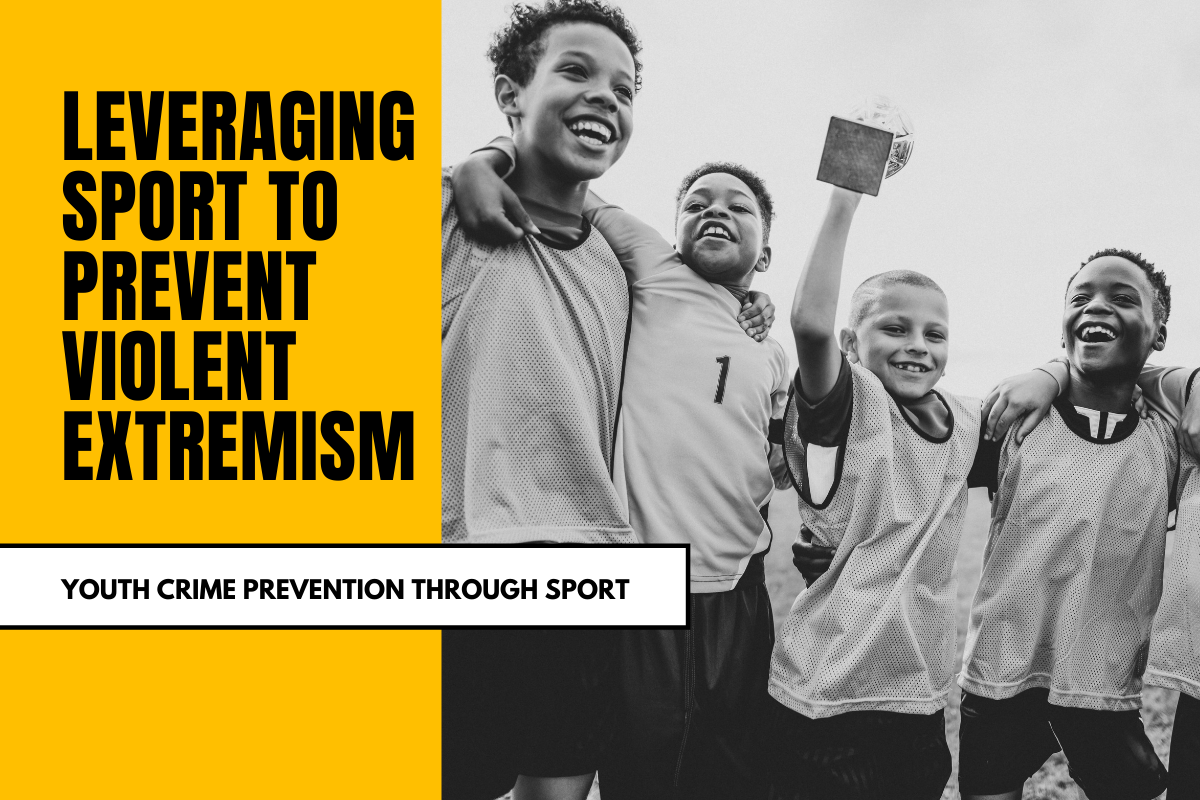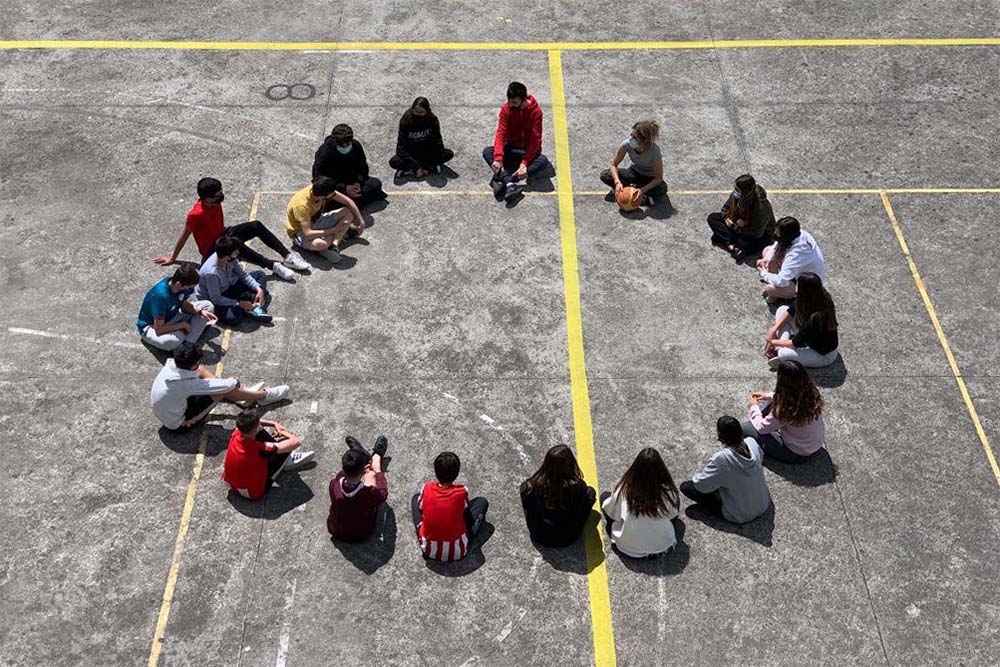Global gathering in Vienna marks the successes of UNODC's Line Up, Live Up

27 January 2020 - The concept of sport for development has become an integral part of development agendas around the world and has been incorporated in various ways into them. Recognized as a powerful contributor to the empowerment of communities and to their social progress, especially for youth, sport has an overwhelmingly positive effect on those who practice it.
For the past four years, UNODC's Global Programme for the Implementation of the Doha Declaration has been working on crime prevention through several components, benefitting hundreds of thousands of people throughout the world. With its Youth Crime Prevention through Sports component, UNODC has focused on engaging youth from marginalized and at-risk communities, promoting sports while inculcating and strengthening positive life skills and values which can help young people better navigate daily challenges in life. These objectives have been molded into the Line Up, Live Up programme, an evidence-informed method mixing sports and life-skills training which has already been rolled out in 12 countries.
"UNODC's longstanding focus on effective crime prevention gives us insight into the root causes of violence and the risk factors for criminal activity. In this context, sport can be particularly effective in addressing vulnerabilities and in reducing opportunities to engage in crime," said Candice Welsch, Deputy Director of UNODC's Division for Operations.
To date, more than 11,000 boys and girls around the world have participated in the Line Up, Live Up programme (of which over 46 per cent were female, with gender parity remaining an ongoing goal), through over 850 qualified coaches and trainers who have undergone the custom training designed by UNODC. UNODC has also strengthened the capacity of more than 400 sports centres and schools, with the provision of equipment and the improvement or refurbishment of sports infrastructure in some communities, in cooperation with different governmental sectors responsible for social affairs, education, sports, youth, health, and law enforcement. In addition, UNODC has also worked closely with civil society organizations, providing grants to support and implement sport-based programmes for young people.
Many of these partners gathered in Vienna last week for a two-day conference to share their experiences with colleagues on the implementation of Line Up, Live Up and to showcase their work, including government representatives from 14 countries. From Latin America and the Caribbean, Africa, Europe and Asia, numerous experiences were presented about the successes and lessons learned in the implementation of Line Up, Live Up in various settings around the world, ranging from schools, sports centers and communities, to institutions for children in conflict with the law. With occasional adaptations to specific cultural contexts, the curriculum has truly been tried and tested and its key achievements have been lauded in the countries where it has been applied; in particular, there are noticeable improvements in the prosocial attitudes of young people after the completion of their training, and in the strengthening of social cohesion.
From Kyrgyzstan, Tajikistan and Uzbekistan to Brazil, Colombia, the Dominican Republic and Peru, and from Lebanon and the State of Palestine to South Africa and Uganda, passing by Spain, there is consensus that the core elements of the training have clear benefits when applied professionally. Line Up, Live Up contributes to improving participants' personal and social skills, to affecting their attitudes and beliefs with regards to violence, crime and drug use, and to enhancing their self-motivation, self-confidence and feelings of self-worth. Indeed, in a UNODC assessment which collected the feedback of nearly 3,000 young people, 98 per cent stated that they were extremely satisfied with the programme and with these new skills which could be applied in their daily life.
In addition to the continued expansion of the Line Up, Live Up programme, the Youth Crime Prevention through Sport component plans to further explore the use of sport in the context of gender-based violence. Sport can play a positive role in girls' empowerment and in their participation in various aspects of life, and such sports programmes can promote gender equality by addressing harmful normative beliefs and norms, and by providing positive female role models. The component is also in the process of developing guidance on the prevention of violent extremism through sport.
"Sport alone is not the solution to crime and violence, of course," commented Marco Teixeira, Senior Programme Officer, "but we know that it can be very effective in engaging at-risk youth, achieving positive youth development, and providing youth with access to pro-social networks and positive role models."
Additional information
Crime Prevention through Sports


